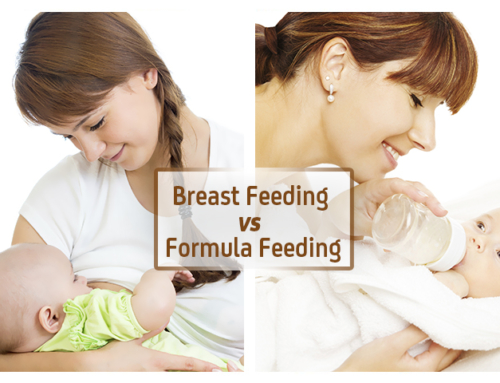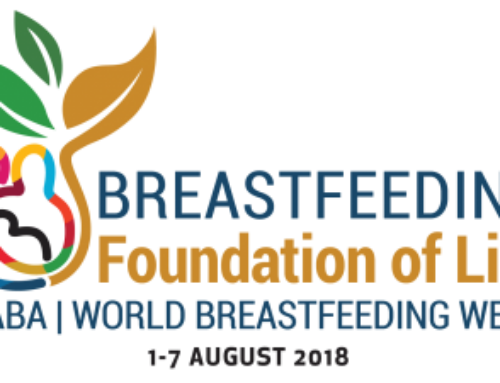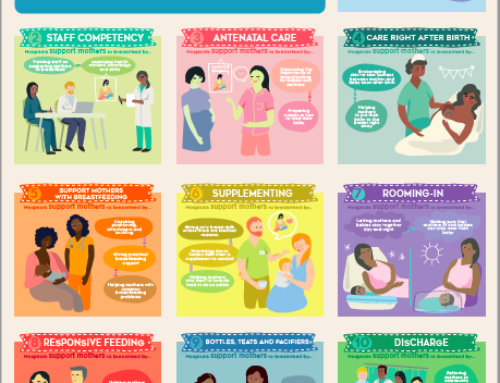 I was inundated this past week with people sending me links to articles about a French family who was charged with child endangerment for, what articles reported, being vegan. The way most outlets had it, the vegan couple were exclusively breastfeeding their 11-month-old daughter when she fell ill and died. The conclusion? Being vegan isn’t safe if you’re breastfeeding. But there is more to this story and an examination of the myths surrounding this case is clearly needed.
I was inundated this past week with people sending me links to articles about a French family who was charged with child endangerment for, what articles reported, being vegan. The way most outlets had it, the vegan couple were exclusively breastfeeding their 11-month-old daughter when she fell ill and died. The conclusion? Being vegan isn’t safe if you’re breastfeeding. But there is more to this story and an examination of the myths surrounding this case is clearly needed.
What Really Happened?
It seems, based on more complete news stories (as I wasn’t there), this 11-month-old girl was exclusively breastfed and her parents were vegan. But her death was due to untreated bronchitis which progressively got worse until she got so sick her parents called an ambulance but it was too late.
So how did the whole vegan thing come up? According to news sites, when the ambulance drivers arrived, they noticed the little girl looked incredibly undernourished. She weighed 5.7 kg (12.56 lbs; unbelievably low, even by breastfeeding standards So we have three issues here to discuss: exclusive breastfeeding for a year, vegan diets and breastfeeding, and a parent’s right to refuse medical treatment for their child. Let’s go… Exclusive Breastfeeding for a Year Unfortunately a lot of people have commented on this story claiming to not give a child solids at six months should be equivalent to child abuse. First, let me say that information on the dietary implications of exclusive breastfeeding for a year is absent. It’s done so infrequently that we just have no real idea if there are any problems associated with it. There does not seem to be reason to believe there is an issue though given that any solids prior to a year are really there for filling or to allow a child to adapt to the taste of different foods. Even in children who receive solids earlier than a year, the vast majority of calories continue to come from breastmilk (or formula). The only potential issue, as I see it, is whether or not a parent is forcing a child to nurse exclusively for a year or if this is a child-led decision. Without research, we can’t say a parent who makes the decision about exclusive breastfeeding for the child is doing any harm at all, and depending on the food available, breastmilk alone may continue to be superior, but it can be seen as denying a child food (potentially). In the case of the child-led exclusive breastfeeding, some would say the child knows his/her own body and what is appealing or not, and as long as one is offering solids, force-feeding a child is also dangerous so exclusive breastfeeding is a-okay. If a child is reaching and asking for food past six months, it may be a sign that they require more calories or a more varied diet or are simply curious. On average, it seems that humans (as far back as the Neanderthals[2]) have been exclusively breastfeeding for approximately six months and then (slowly) introducing solids. For whatever reason, that is when human babies seem to want to expand their palate and when we oblige. However, it certainly isn’t unheard of to exclusively breastfeed for longer. The bigger issue seems to be about the nutritional status of the breastmilk and what it offers the child, which brings us to… Vegan Diets and Breastfeeding To me, the fact that the “vegan” diet is getting the bulk of the criticism is silly. It should really have raised awareness about diets in general (especially in North America) and breastfeeding. It’s very simple, if you aren’t getting proper nutrition, your body doesn’t (always) magically make it for your breastmilk. Your diet is your breastfed child’s diet. And deficiencies in several of the key vitamins for development are linked to maternal diets that are lacking in these vitamins. For example, there is research on Vitamin D deficiencies in breast-fed babies due to maternal deficiencies[3] as well as Vitamin B12 and folate deficiencies due to maternal underconsumption both during pregnancy and lactation[4][5]. Some research has found that areas in which there are extreme deficiencies in the mother’s diet have higher likelihoods of resulting Vitamin A deficiency in infancy (which can be fixed via supplementation)[6]. However, this is rare because even in poorly nourished areas, breastfeeding has found to be protective of Vitamin A deficiency, suggesting that the level of deprivation needed to reach this is more extreme than in many of the poorest regions of the world[7]. The child in question was deficient in Vitamin A and B12. Well, B12 is a vitamin we get from animal sources and is key to an infant’s neurological development. Infants who are deficient present with many symptoms of developmental delays and regressions (including anorexia and failure to thrive)[8]. Notable to the case at hand, vegans are notoriously low in B12 as they don’t consume any animal by-products, but not because they can’t reach their recommended daily intake. Vegans DO have options, including certain nutritional yeasts that provide a full daily amount and fortified items or even plain supplements. And most vegetarian and vegan sites and books are very clear on the importance of ensuring you receive adequate B12, especially when lactating. The deficiency in Vitamin A is a little harder to understand. As previously said, the fact that the child was notably deficient despite being breastfed suggests levels of deficiency seen in some of the most impoverished areas of the world. Although even in one study out of a poorer region of Ethiopia, none of the breastfed children (many were in preschool and still nursing – yeah!) were deficient despite many becoming deficient as soon as they weaned[7]. And as many of the sources of Vitamin A are vegetables, I can honestly say I fail to understand how a vegan could be deficient at all. What does this mean? In this case, it seems the parents’ diet was woefully inadequate. In the case of B12, it was clearly due to their vegan diet and a refusal or ignorance about supplementation. In the case of vitamin A, who knows?! However, does this mean we condemn vegan diets? I say no. We know they can be quite healthy, even though it may require more work on behalf of those partaking in them. Furthermore, an unhealthy diet seems to be an issue in today’s world regardless of whether you’re vegan or not. In one study, it was found that the average diet in the United States is deficient in vitamins A, C, D, and E, calcium, and magnesium[9]. Other research has found that most North Americans are also deficient in Omega-3 Fatty Acids, also key for infant neurological development[10]. So it seems that many parents could be found guilty of not providing the nutrients their children need for development and yet we wouldn’t think to charge them if they were eating a more mainstream diet. Even though children who are lacking in these vitamins are, as pointed out in the original case, at a higher risk of getting sick. This means we need more information and education on proper diet, and what signs to look for in terms of deficiencies in ourselves and our children. No one wants their child to get sick, which is what happened here, and which brings us to the final issue… Can or Should Parents be Able to Refuse Medical Treatments for their Children? This seems to be the real crux of the issue. Had these parents brought their daughter in for treatment when she got sick, a whole host of issues would have been found and hopefully dealt with. Nutritional deficiencies would be noted and I would hope, she’d have started on supplements immediately. She’d have received treatment for her bronchitis. Chances are, she’d be here today. The question becomes, should parents have the right to refuse these treatments with no repercussions? In North America, it’s much harder to prosecute (though certainly not impossible), especially as many people refuse under religious grounds. In France, there are far fewer protections on religion (not that it was brought up here anyway) meaning they can and did charge these parents. On the surface it’s easy to say that parents should not be able to, that the child’s rights supersede that of the parent’s. But then we have to consider what it means when parents have no rights to refuse treatment. Imagine a doctor saying your child needed a circumcision or medicine you felt would actually harm your child. How would you feel if you had no rights? If your failure to agree with a doctor meant risking jail time or loss of custody? What happened is a tragedy for that little girl. But let’s at least make sure that the real issues come to light and not a vilification of veganism or extended breastfeeding. We need parents to be aware of the nutritional issues around breastfeeding and the signs to look for when something isn’t quite right. That, and that alone, should be the take-home message. [Image Credit: The Telegraph.co.uk]
[1] https://web.archive.org/web/20121028111324/http://kellymom.com/wp-content/uploads/WHOgrowthcht_wfa_girls_p_0_2.jpg [2] Austin C, Smith TM, Bradman A, Hinde K, Joannes-Boyau R, Bishop D, Hare DJ, Doble P, Eskenazi B, Arora M. (Early View) Barium distributions in teeth reveal early life dietary transitions in primates. Nature. [3] Mulligan ML, Felton SK, Riek AE, Bernal-Mizrachi C. Implications of vitamin D deficiency in pregnancy and lactation. Am J Obstet Gynecol 2010; 202: 429.e1-429.e9. [4] Allen LH. Causes of vitamin B12 and folate deficiency. Food & Nutrition Bulletin 2008; 29: 20-34. [5] Molloy AM, Kirke PN, Brody LC, Scott JM, Mills JL. Effects of folate and vitamin B12 deficiencies during pregnancy on fetal, infant, and child development. Food & Nutrition Bulletin 2008; 29: S101-S111. [6] Stoltzfus RJ, Hakimi M, Miller KW, Rasmussen KM, Dawiesah S, Habicht J-P, Dibley MJ. High does vitamin A supplementation of breast-feeding Indonesian mothers: effects on the vitamin A status of mother and infant. Community and International Nutrition 1993; 123: 666-75. [7] Asrat YT, Omwega AM, Muita JWG. Prevalence of vitamin A deficiency among pre-school and school-aged children in Arssi Zone, Ethiopia. East African Medical Journal 2002; 79: 355-60. [8] Dror DK, Allen LH. Effect of vitamin B12 deficiency on neurodevelopment in infants: current knowledge and possible mechanisms. Nutritional Reviews 2008; 66: 250-5. [9] Fulgoni VL, Keast DR, Bailey RL, Dwyer J. Foods, fortificants, and supplements: where do Americans get their nutrients? J of Nutrition 2011; doi: 10.3945/jn.111.142257. [10] Child & Family Research Institute (2008, March 11). Typical North American Diet Is Deficient In Omega-3 Fatty Acids. ScienceDaily. Retrieved May 27, 2013, from http://www.sciencedaily.com /releases/2008/03/080307133659.htm
It’s a very difficult discussion and yet one that does affect us as parents. And while I wholeheartedly disagree with what this family did – after all, a child that is clearly underweight (by a lot), failing to thrive, and sick needs to be seen by someone – and personally find them to be either remarkably stupid or morally lacking, I don’t know that it should be illegal. At the very least jail time seems the last thing that would help, though I agree with the court’s decision to remove the other child from the home (that’s a consequence I can get on board with).






I agree that they shouldn’t make the vegan mother’s diet and her exclusive breastfeeding the main problem that caused this little ones death. However for me it really was a strong reminder that I do need to watch my diet. I eat rather healthy most of the time but sometimes I do forget to take note that a baby and toddler are at stake too drinking the milk my body creates using the nutrients I give it. So, I’ve been focusing more on my fruits and veggies and took a prenatal w/ DHA tonight 🙂
I agree that there is no good evidence to suggest a maternal vegan diet and exclusive breastfeeding are dangerous (nor should we expect there to be, given the mother eats enough calories, fat, protein, and supplements with B12). But your commentary on extended exclusive breastfeeding duration is not at all complete, and somewhat dangerously misleading. There has been PLENTY of cross-cultural, clinical research showing that exclusive breastfeeding is NOT sufficient to support the increased energy demands of growing infants after about 6 months (and yes, I am referring to growth standards for breastfed infants; see current WHO reports and recommendations, and Katherine Dewey’s research on energy derived from breast milk and complementary foods). Vitamin A concentrations in breast milk also decline after 6 months, irrespective of maternal vitamin A intake (Fujita et al., 2009, 2011 http://onlinelibrary.wiley.com/doi/10.1002/ajhb.21195/full).
Even in traditional breastfeeding populations (i.e. in which infants are breastfed “on demand”, bottle-feeding is rare, mixed breast- and complementary feeding is practiced for 1-3 years postpartum, etc.), infants are introduced complementary foods well before 1 year, and often before 6 months (see Sellen’s 2001 cross-cultural survey). Complementary foods are just that: complementary. Breast milk still provides a substantial portion of energy (including fat and protein), as well as other vital vitamins, nutrients, and immunological support–but additional energy from complementary foods are also needed. Interestingly, delayed complementary feeding introduction (to about 8 months) has been observed in such populations (e.g. Papua New Guinea, see Worthman), but may be an (evolutionary) strategy by resource-limited women to SLOW infant growth and therefore their energetic needs. In short, sure one can exclusively breastfeed beyond 6 months, but this will almost certainly result in severe growth stunting.
It is sad, but not at all surprising, that this couple’s child was so small at 11 months. Yes, the infant died of an infectious disease and not directly from malnutrition. But this couple was grossly misinformed about infant nutrition, to the point that they were, in fact, starving their child. And in truth, the infant’s nutritional state was likely much, much more the result of exclusive breastfeeding to 11 months than the mother’s vegan diet.
I will look at the research and see what I can find, but I can say from my own experience and many others I know, infants can exclusively breastfeed to a year and be a-okay, but as I alluded to, I think it has more to do with forcing a child who’s looking for food to avoid it as opposed to children who are not interested in other foods. My mother exclusively breastfed me and my siblings until around a year with no growth problems, my own daughter had no interest in solids (outside the very occasional bite) until 14 months. I can tell you that none of us had our growth slowed 😉 But of course, I am aware that anecdote does not equal data.
So I will check the research (I know the WHO recommendations but can’t find research on it except to suggest 6 months as opposed to 4!). And I know must cultures do introduce complementary foods around 6 months (why I mentioned that), but I also know not all *individuals* in a given society do that. So I’m certainly not advocating people do this, but there are cases in which it does happen and I have yet to read any evidence myself against it and know first hand that it does not “almost certainly result in severe growth stunting” unless my family (and several others I know where children were not interested) are completely bizarre 🙂
FYI, I would recommend reading Kathy’s piece here which suggests exclusive breastfeeding for a year can be fine, depending on the mother-baby dyad…
http://www.kathydettwyler.org/detexclusive.html
I’ve done some more research tonight and can find nothing to support your claims that exclusive breastfeeding for a year when mom has adequate supply and nurses on demand is detrimental to baby’s growth. Do you have specific citations you can send me?
Edit: I was thinking about this again and I think there’s a big misconception between exclusive breastfeeding when (a) mom is not feeding on demand, (b) is missing crucial nutrients in her own diet, or (c) when mom’s milk isn’t enough. These are circumstances which are common around the world and will influence the health of exclusive breastfed babies. And in this case it suggests mom’s health was the critical factor or even how often she was breastfeeding. Also, with respect to Vitamin A, though levels may decrease in breastmilk regardless of mom’s levels, it doesn’t explain the cross-cultural data showing that so long as mom is breastfeeding at all, even at 3 or 4, children do not show Vitamin A deficiencies except in dire circumstances.
I know that individual cases aren’t evidence but I just want to add that my first was ebf (aside from water) until 17 months. He was always above the 97th percentile and was very healthy.
First, you’re right that as far as I know there hasn’t been any one study comparing growth outcomes of infants exclusively breastfed (EBF) for 6 vs. 12 months —the bulk of the research in developed and less-developed populations is all on complementary feeding (CF) introduction before vs. at 6 months. The 6-month recommendation is based on cross-cultural epidemiological evidence of optimal health and growth outcomes (e.g. Kramer and Kukuma 2001) and estimated energy requirements after 6 months (e.g. Dewey and Brown 2003, see also the discussion by Humphrey 2009 about birth size doubling and weaning initiation). So yes, a lot more research needs to be done on energy requirements and growth outcomes given mixed BF/CF strategies after 6 months.
Secondly, I agree that the entire weaning process (which as Dettwyler and other anthropologists define it begins with the introduction of CF and culminates in the complete cessation of BF) is incredibly variable and flexible, across and within cultures, and even across individual women’s own experiences with multiple children. Nutritional needs and growth outcomes are highly individualized, affected by prenatal growth, birth weight, and the quality and nutritional density of complementary foods given, in addition to nursing frequency, milk intake, and variability in milk composition (some genetic, some dietary). There is no single feeding trajectory that will or should fit every infant.
What we really see across populations (WEIRD, economically less-developed, and “traditional”) are general tendencies and norms in relation to infant feeding practices, with lots of variation about the mean reflecting the constraints and needs of individual mothers and infants. From an anthropological, evolutionary, and personal perspective, this is how it should be. Yes, infant feeding recommendations for all populations should emphasize that women attend to their infants’ individual needs and signals, that nursing mothers eat a nutritionally adequate diet (particularly with respect to dietary-derived nutrients in breast milk), and that infants receive high-quality complementary foods. And yes, no woman should be penalized for CF earlier or later than 6 months, because that recommendation is based on a statistical norm, taking into account epidemiological evidence and general patterns of infant development that obviously any individual can deviate from.
That said, from a *public health* perspective the recommendation to begin CF at 6 months still has a lot of merit. First, after 6 months, milk concentrations of some nutrients decline, are more variable with changes in milk volume (Dewey et al. 1984), and more sensitive to maternal factors (e.g. maternal weight, parity) (Nommsen et al., 1991). So it is more difficult to make generalized feeding recommendations about milk intake after 6 months, given estimated energy requirements. Second, the energy requirements derived from mixed-BF/CF after 6 months support *optimal* infant health and growth outcomes. One can argue about the ecological validity of “optimal” or normal growth curves and their relation to individual infant growth outcomes and energy requirements (even keeping in mind that current WHO recommendations are based on breast-fed infants, and do account for lower energy requirements of breast-fed infants)—but growth is still a good proxy for overall health—e.g., an underweight or malnourished baby is more likely to be immunocomprimised and at risk for illness and death.
Standardized growth metrics and the feeding recommendations based on them can be extremely useful in devising public health strategies to improve infant outcomes. For example, as discussed by Dettwyler and Brown (2003), when we see early growth faltering in a population, can complementary food quality be enhanced through local food sources? Are certain key nutrients lacking in a population and can fortified foods be introduced to mediate this deficiency? But even for individual women, the recommendation can serve as a useful guideline against which to measure their own babies’ growth and development. Is my 4 month old rapidly growing and increasingly inconsolable? Maybe she’s not getting enough energy from my milk and I should introduce foods. Great. My 4 month old is very small for her age? Maybe she’s not getting enough nutrients from my milk and I should supplement. Great. Or: my 7 month old has a normal growth trajectory, but is not responsive at all to my attempts to feed him liquids or solids, should I just keep EBF? Sure! Great, as long as she is still thriving, why not?
My point is that the above are all conversations individual families (and pediatricians) should be having. But at the population level, the public health message should still be to start introducing CF at 6 months, given what we *do* know about energy requirements and growth trajectories in the first year of life. Until evidence suggests otherwise, I would personally not suggest on a public forum that extended EBF beyond 6 months is just fine or not without known risks.
Dewey and Brown 2003 (http://www.who.int/mip/2003/other_documents/en/FNB_24-1_WHO.pdf)
Dewey 1984 (http://journals.lww.com/jpgn/Abstract/1984/11000/Breast_Milk_Volume_and_Composition_During_Late.14.aspx)
Humphrey 2009 (http://www.sciencedirect.com/science/article/pii/S1084952109002286)
Nommsen 1991 (http://ajcn.nutrition.org/content/53/2/457.short)
Thank you for this clever article. 🙂
I quite agree with everything you said, but I would like to bring some enlightenment about beeing vegan and taking care of one’s health in France.
I do not excuse these parents and I can’t say I understand them. However, beeing vegan in France myself, I do encounter problems with health care and I can imagine it could lead to “hazardous” things. The thing is, veganism is not accepted here, and the health professionnals are quite convinced that this way of life is particularly unhealthy… So if your general practitioner is not open minded, the communication can become really difficult, cause to him, every problem you have is due to your veganism (even a broken leg you got from skiing !). “You eat meat or take this animal product medecine and you will be ok”, no discussion.
This situation is “forcing” a lot of vegan to go and get health advices somewhere else, and that can sometime be ok and sometimes.. very dangerous ! I just think there might have been a bit of that in the case of this family (on top of everything else..).
Very very interesting. I wondered how culture played a part there. Thank you!
[…] is an article that discussed the vegan breastfeeding […]
I live in France, breastfeeding here is hard because the doctors are all against it. I was sent to hospital this week for an asthma attack, and when I explained I was breast feeding the nurse asked how old my son was, when I said ten months she said I should stop feeding him.
There’s also a lot of people against vegetarian diets, and vegans.
It’s not a fun country to be in if you’re not “normal” and you don’t follow the trends.
Sadly cases like this don’t help us in the fight for alternative diets. I am a third generation vegetarian and breastfed both of my children.
Even in the UK I have had many negative comments. Assumptions that we must need to take daily vitamins (no). My health visitor was particularly concerned when she found out that my child was not eating meat. She made me feel neglectful and claimed that they NEED meat to develop properly. Amongst others we have a rocket scientist, and a doctor in the family – neither have ever eaten meat. Sadly most vegetarians don’t have such a strong support network behind them.
I have found that many comments stem from ignorance. In an argument with a friend she informed me that you NEED to eat meat because when she was a teenager she became vegetarian and became deficient in something (I’m assuming Iron). She is a very picky eater and she didn’t understand is that when you remove meat from your diet you then have to replace it with something else. I have never been iron deficient, even when pregnant.
All that being said I do worry for this family. It’s an awful situation. I can’t help wondering if they were wary of using the health service as they knew their alternative lifestyle would attract?
[…] Being Vegan, Breastfeeding, and Infant Safety https://gku.flm.mybluehost.me/evolutionaryparenting.com/being-vegan-breastfeeding-and-infant-safety/ Super Foods for Vegetarian Pregnancy and Lactation […]
[…] Dr. Michael Greger ➣ Article On Safe Pregnancies (with research links) by Dr. Michael Greger ➣ Being Vegan, Breastfeeding, and Infant Safety by Tracy Cassels, PhD ➣ Vitamins & Supplements Worth Taking by Dr. Michael Greger ➣ The […]
[…] Great, as long as she is still thriving, why not? My point is that the above are all conversations individual families (and pediatricians) should be having. Why do i have hives all the time But at the population level, the public health message should still be to start introducing CF at 6 months, given what we *do* know about energy requirements and growth trajectories in the first year of life. Hives in dogs stress Until evidence suggests otherwise, I would personally not suggest on a public forum that extended EBF beyond 6 months is just fine or not without known risks. Site: https://gku.flm.mybluehost.me/evolutionaryparenting.com/being-vegan-breastfeeding-and-infant-safety/ […]
[…] It is, however, your responsibility to ensure that you consume a balanced diet and get the necessary nutrients that will passed through breast milk to your baby [5]. […]